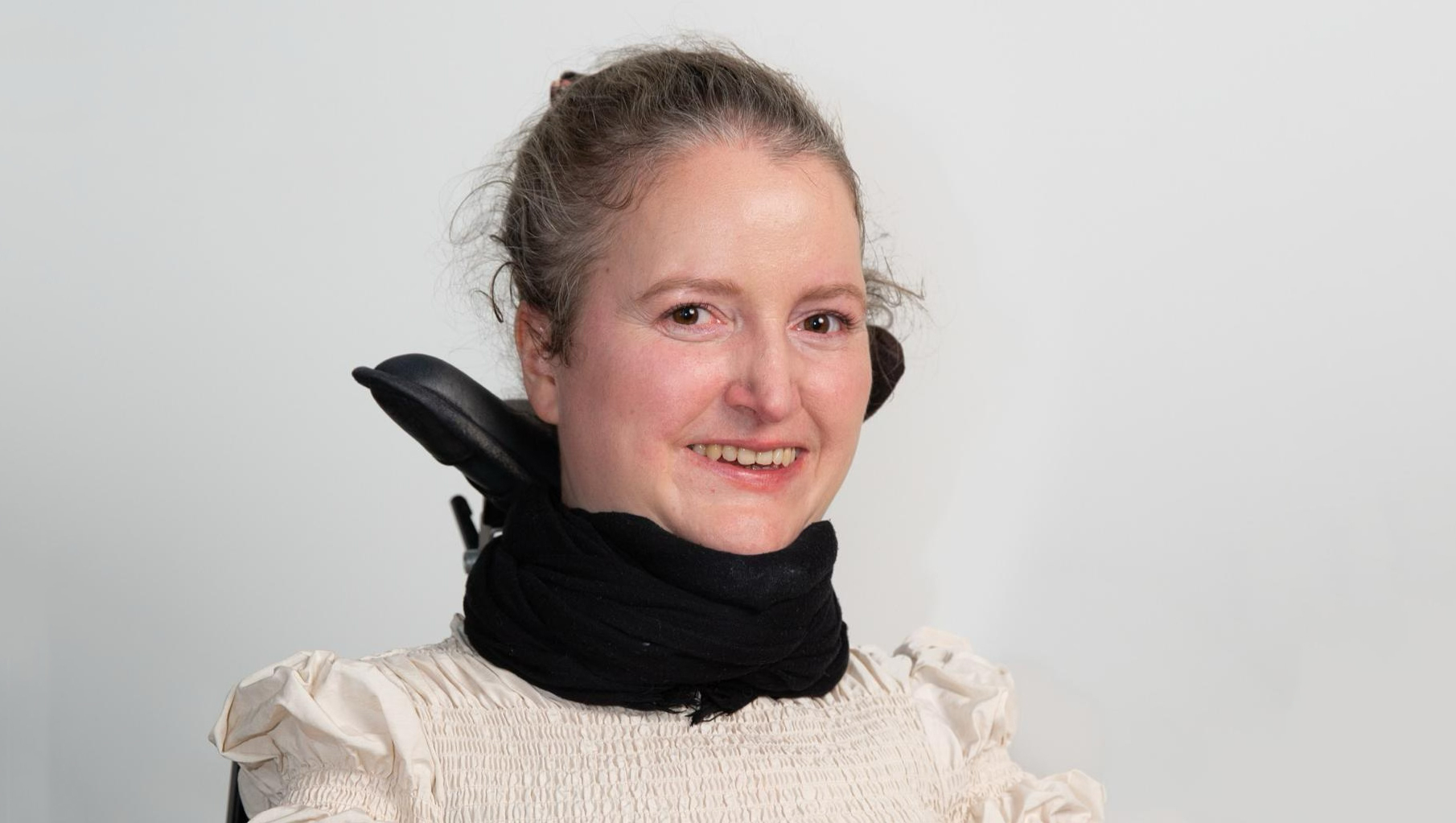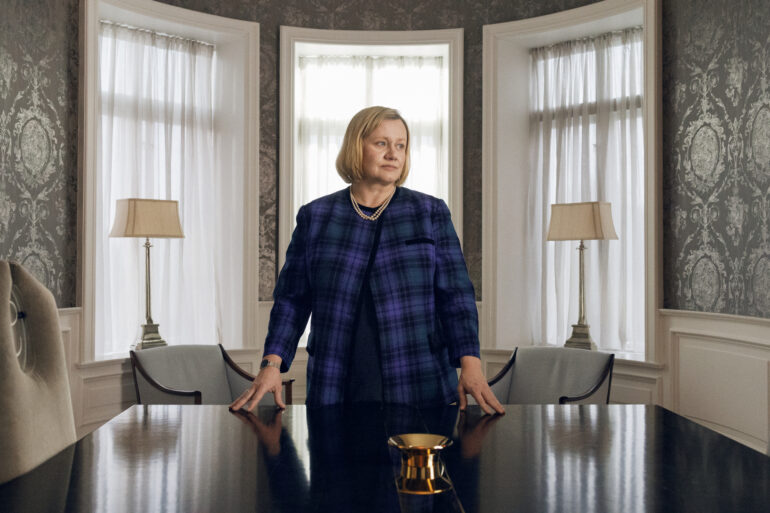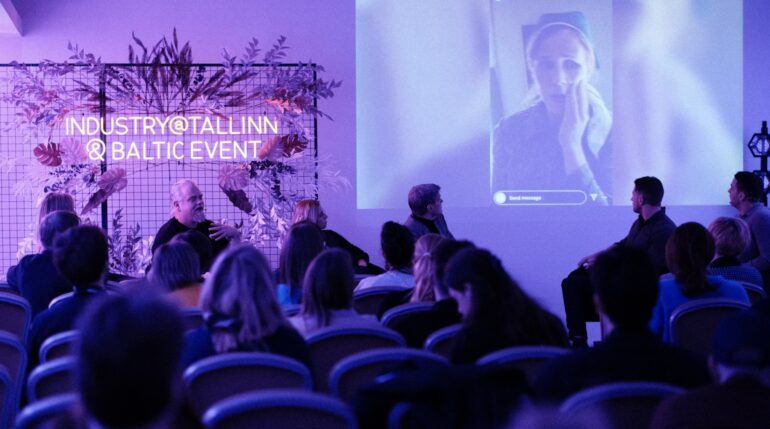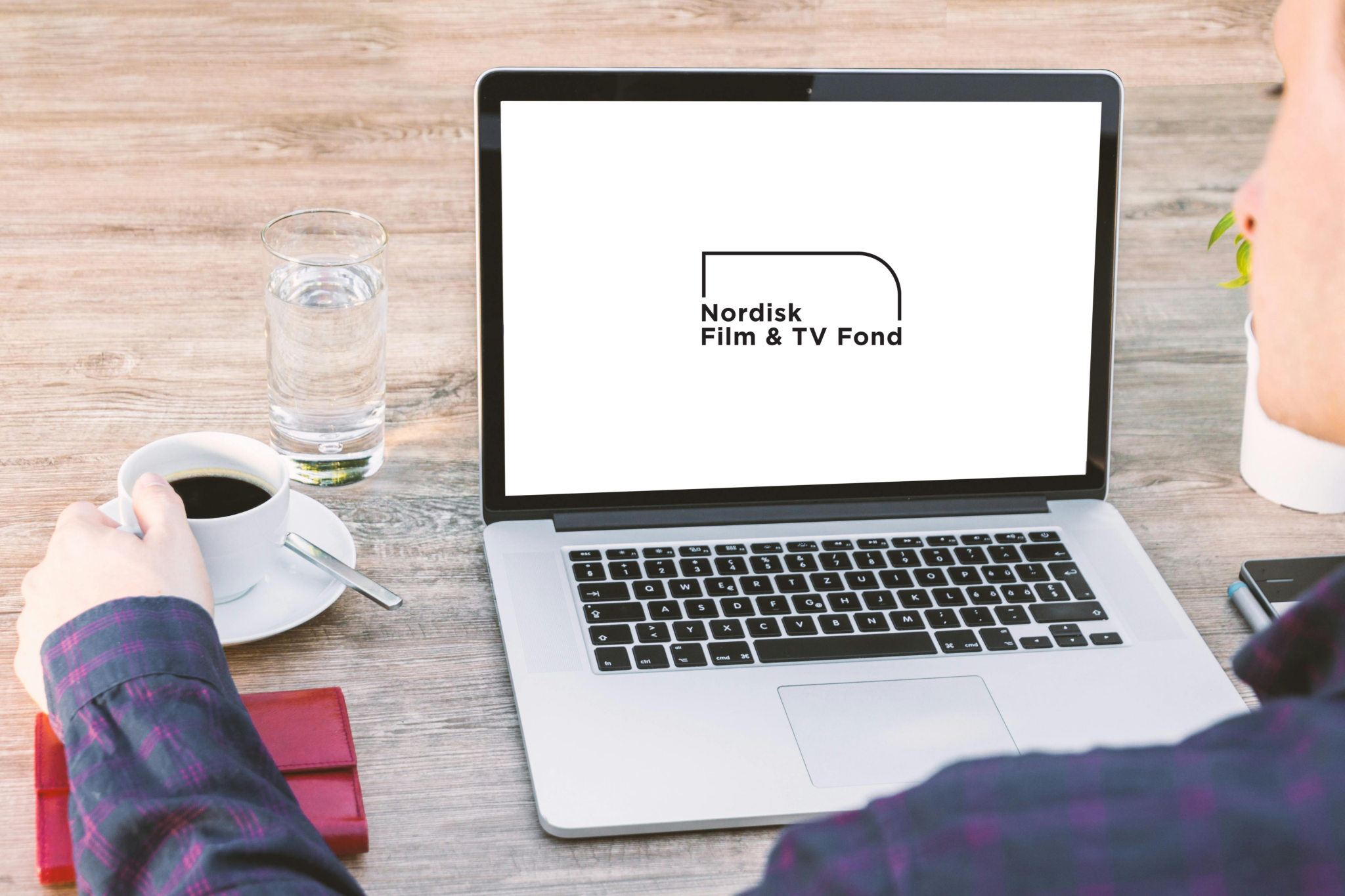
WRITTEN BY: Davide Abbatescianni
Petter Næss’s No Comment wins Best Script, microdramas gear up for a European breakthrough, and the Nordics show resilience with a renewed creative spark.
Unspooling this year from 7–23 November, the Tallinn Black Nights Film Festival (PÖFF) reaffirmed its position as one of Northern Europe’s most expansive industry and audience events, combining a wide international programme with the region’s most important co-production platform, Industry@Tallinn & Baltic Event (14-21 November). The 2025 edition offered a strong —if selective — Nordic footprint across competitions, project showcases and awards.
Norwegian producer Gudny Hummelvoll and Estonian producer Jevgeni Supin were recipients of this the 2025 Honorary TV Beats Producer Awards. Norway also made a big splash in the International Competition with Petter Næss’s political satire No Comment (Ingen Kommentar), led by Laila Goody as a prime minister navigating a spiralling scandal triggered by her husband’s dubious stock dealings. The film earned one of the competition’s key prizes, as Ståle Stein Berg picked up Best Script, confirming the project’s blend of sharp writing and well-timed comic timing.
Nordic success continued in the First Feature Competition, which showcased Mari Storstein’s My First Love (Min første kjærlighet) and saw Christian Bonke’s Danish-German drama Hercules Falling (Herkules Falder) scoop Best Film. Starring Dar Salim as a traumatised soldier forced into a remote rehabilitation retreat, the film impressed the jury with its rigorous character study and restrained handling of violence and redemption. Also from Denmark is Mogens Hagedorn’s Pretty Young Love (Smukkere), a sequel to teen drama Pretty Young Thing (Smuk), which played in the Just Film strand.
In the documentary strand, the Nordic region achieved top recognition with Karin Pennanen’s Days of Wonder (Päivien lumo, Finland/Denmark/Norway) winning Best Film in the Doc at PÖFF competition. Meanwhile, in the Baltic Film Competition, Nordic talent played a key role in Vytautas Katkus’ The Visitor (Svečias, Lithuania/Norway/Sweden), which snagged Best Baltic Film.
The Baltic Event Co-Production Market further expanded the region’s footprint. Norway was represented with Tove Undheim’s family-drama project One Brother Too Many (En bror for mye), produced by Ellen Ugelstad, seeking partners across sales, broadcasters, and funding bodies. Finland participated through Johnny (Estonia/Latvia/Finland), Jaak Kilmi’s period portrait of future Estonian president Lennart Meri. Together, these projects demonstrated how Nordic creatives continue to use Tallinn as a launchpad for cross-regional alignment.
Microdramas: the next frontier of audiovisual storytelling
One of the most forward-looking conversations during Industry@Tallinn came via the two Meeting of Minds, both signalling where Nordic and European producers may be heading next. Nordisk Film’s Marike Muselaers opened the first one, noting that microdrama has become one of the most dynamic frontiers of today’s audiovisual production, and a sector projected to grow to $26 billion by 2030. The panel mapped out how radically viewing habits are reshaping creation and financing models.
Seriencamp head Gerhard Maier offered a rapid history of vertical storytelling — from Snapchat originals to TikTok’s emotive “corecore” aesthetics — showing how ultra-short, emotionally distilled clips are already inspiring young filmmakers to craft “micro-movies”. Producer Krystof Safer described his trajectory from screening a two-hour vertical art piece to witnessing Chinese platforms now paying $100,000–150,000 for 60–80 minutes of content, with some services generating $1 million a day. He highlighted Ukraine’s emergence as a microdrama powerhouse, supplying much of the English-language material with a style shaped by years of “moral films”.
Creators Sean and Andrew Higton (Snapchat’s Dead of Night) dug into workflow: simplified scripts, full pre-visualisation, and constant phone-based edit tests to align with “hovering-thumb” users who shape their own narratives. Europe’s response is gathering pace: Eccho Rights’ Sarah Postlethwaite is developing one of the UK’s first vertical dramas with Spirit Studios and TikTok talent, embracing a writers’ room where “no idea was too crazy”.
For legacy players—including those in the Nordic region — the session underscored a simple lesson: adapt to vertical’s speed, data-driven iteration and sharp hooks, while preserving craft. As Postlethwaite noted, audiences are increasingly seeking narrative and character, even when meeting them one minute at a time.
Survival skills in perpetual uncertainty: risk, flexibility and originality
The second Meeting of Minds, hosted on the same day, dissected an ecosystem where instability has become the baseline and survival is about staying agile without losing originality. Moderator Johanna Karppinen framed a landscape shaped by shrinking commissioning volumes, shifting streamer strategies, and volatile incentives, asking whether creative risk is now “a survival strategy or a luxury”.
For French-Swedish producer Patrick Nebout, following briefs is a dead end. He has “stopped asking broadcasters what they need”, arguing that when a broadcaster calls for rom-coms, “100 people behind you are going to do that”, and the demand will have changed by the time a show is ready. His series Whiskey on the Rocks only took off after a radical pivot from political thriller to satirical comedy, proving that trusting a singular vision can be more effective than obeying data and buzzwords.
Icelandic producer Jonas Margeir Ingolfsson highlighted the difficulty of “pre-empting what buyers are going to be looking for in six or twelve months”, yet advocated “stupidly optimistic” flexibility. The old Nordic recipe – local commissioner plus distributor plus soft money – is no longer a template, but a toolbox: Every project is “its own new beast”,” demanding tailor-made partnerships and financing plans.
From the funding side, Nordisk Film & TV Fond’s CEO Liselott Forsman stressed that public support and structured collaboration remain Europe’s backbone. At NFTVF, the Nordic Council of Ministers, broadcasters, and institutes act as a strategic hub, increasingly focused on bridge-building not only between the Nordic films and series industries but also between the public and private sector. In 2026 the Fund is launching the “Nordic Commissioners” initiative, a networking and educational lab for professional commissioners – still one of the few roles with no formal training – and a major market study to analyse “what actually travels and how” within and beyond the Nordics.
Across the board, the message was that producers must think in slates, manage constant rejection, and still defend bold, original ideas. In an era of platform-agnostic viewing, vertical formats and micro-drama experiments, the panel’s shared conclusion was clear: Adaptability is essential, but real resilience lies in protecting creative brains who dare to surprise the market, not just serve it.






